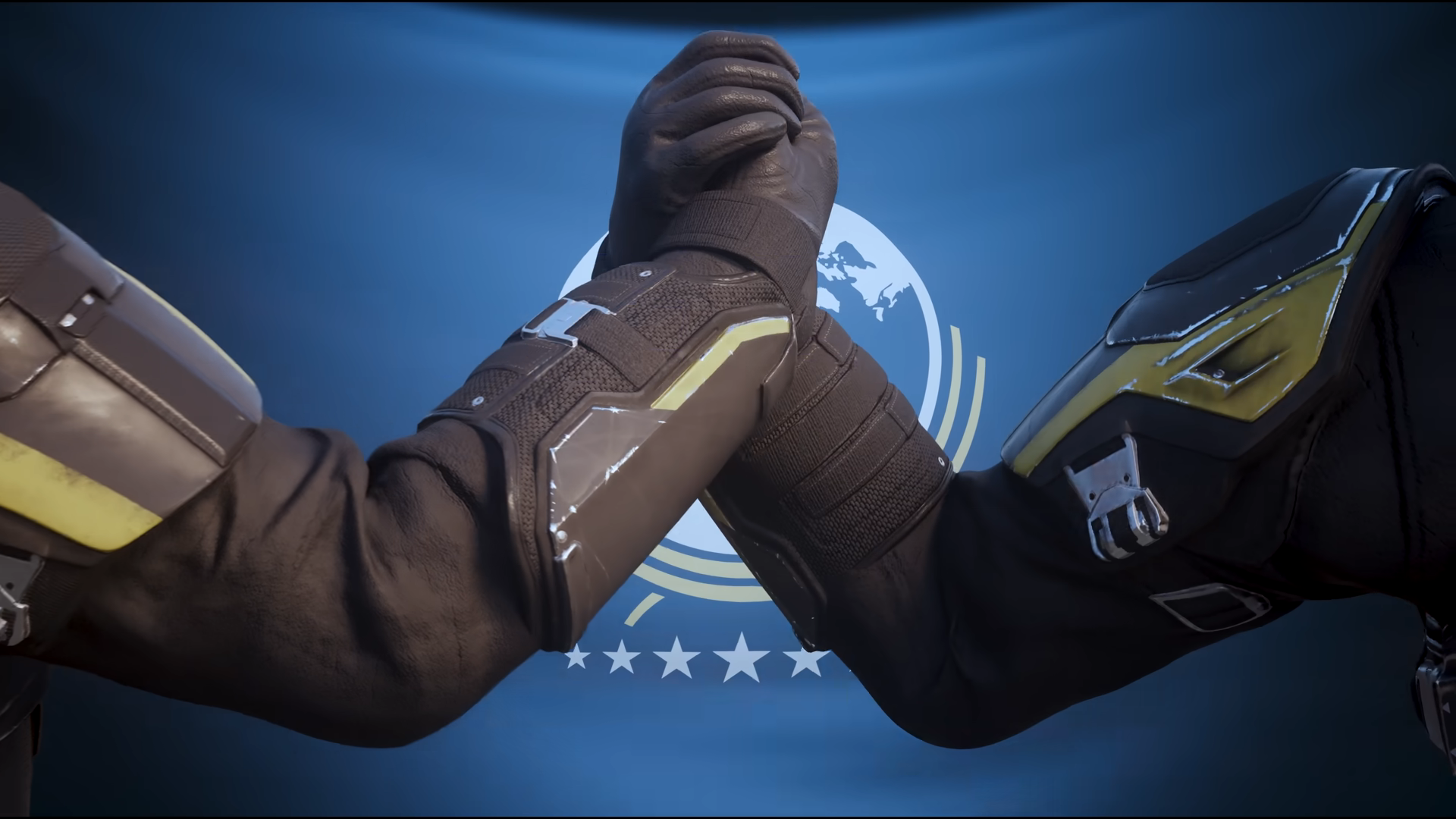Arrowhead initially planned to make Helldivers 2 in 3 years—instead it took 7 years, 11 months, and 26 days, but 'grit, camaraderie and compassion' saw the team through
That's a long deployment.

Helldivers 2, despite having some recent growing pains, is nonetheless an overall triumph for developer Arrowhead Games. You don't just get hundreds of thousands of concurrent players a mere smattering of months after release without, you know, being a good videogame.
Helldivers 2 is a major success now that its launch is in the rear-view—with an amount of copies sold larger than the population of Sweden and former CEO, now CCO Johan Pilestedt dreaming of the studio becoming next FromSoftware. But things didn't always look so bright, as revealed in a talk Pilestedt gave at Nordic Game 2024 this year.
"We got asked if we wanted to do a sequel to Helldivers, and we said 'yeah, I think that sounds like a lot of fun, because it'll be easy'. We already know the game … could probably do it in [three years]," reveals Pilestedt, before clicking to the next slide where a giant 'WRONG' stamp layers over his presentation. "Yeah. This was wrong. That's an incorrect assumption."
Pilestedt proceeds to drop the 500kg bomb that Helldivers 2 took, instead, 7 years, 11 months, and 26 days to create—over twice as long as the intended development time.
"How can we take a game that was supposed to be in development for three years, and almost end up at eight? And how did we manage to survive during that time?" Pilestedt asks. "Apparently, game development is hard, so they say—and the reason why game development is hard is that it's not a straight line."
Pilestedt presents a development cycle fraught with industry-standard problems, the kind that typically lock studios into a never-ending rut of development hell: "It is iterative. You have to change your mind. You have to retry things, and evolve things, and a lot of times you try different things and come back to the original design because that was clearly the best one."
But there were also other factors, as Pilestedt lays out.
Keep up to date with the most important stories and the best deals, as picked by the PC Gamer team.
Helldivers 2 experienced rapid growth from a studio of "around 10 people. Towards the back-end of the project, we were 16" to a "team of some 35 individuals … we were still retaining our small team ways of working." The problem only grew with the team's size, going from 40, to 60, to over 100 developers over the course of the game's development.
"It creates not only chaos within a project, but chaos within the working conditions of the company … it becomes a vicious cycle when these things are not dealt with appropriately." Ultimately, Pilestedt says the team's reluctance to go "corporate" was a huge part of why there was so much team-scaling jetlag:
"We wanna be a 'hang out on the terrace and have a beer kind of company'," he explains, though he doesn't think those things are mutually exclusive—the organisational structure, processes, and proper planning "actually help and ensure we can retain that … luckily, over time, we managed to overcome this."
Lastly, Pilestedt identifies the "pitfall" of "moving targets … we made a really really nice prototype of the game, and we agreed together with PlayStation that, you know what? If we just doubled the budget, it will be even better." He argues that there were moments like that where things "seemed good, but the proper consequences were not taken into consideration.
"We had this mentality from being in a small studio where we basically said yes to any challenge because we knew that we could do it. But the problem is that, suddenly, when you can't do it anymore, that starts biting you in the ass."
All of this, Pilestedt says, caused the team to fall behind in some ways that were catastrophic in terms of meeting deadlines—"we never stopped to catch up"—before saying that "grit, camaraderie and compassion" got his team through the dark times: Refusing to quit, fostering trust between designers on the team, and having compassion for their players.
"That is the reason why we get up in the morning—every day we think of those gamers that are maybe going through a hard time, and when they can play our game, maybe that gives them solace in a moment that would otherwise be hard."

Harvey's history with games started when he first begged his parents for a World of Warcraft subscription aged 12, though he's since been cursed with Final Fantasy 14-brain and a huge crush on G'raha Tia. He made his start as a freelancer, writing for websites like Techradar, The Escapist, Dicebreaker, The Gamer, Into the Spine—and of course, PC Gamer. He'll sink his teeth into anything that looks interesting, though he has a soft spot for RPGs, soulslikes, roguelikes, deckbuilders, MMOs, and weird indie titles. He also plays a shelf load of TTRPGs in his offline time. Don't ask him what his favourite system is, he has too many.

